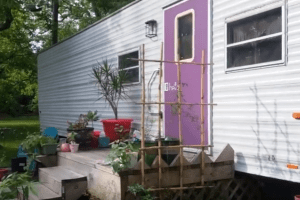
Health Problems Detailed For Lawmakers To Understand FEMA Trailer. A FEMA (Federal Emergency Management Agency) trailer resident told a Congressional panel on Wednesday that her children have suffered respiratory problems since living in one of the agency’s formaldehyde-laden trailers. The woman, a resident of Mississippi whose house was destroyed by Hurricane Katrina in 2005, also said […]

Health Problems Detailed For Lawmakers To Understand FEMA Trailer. A FEMA (Federal Emergency Management Agency) trailer resident told a Congressional panel on Wednesday that her children have suffered respiratory problems since living in one of the agency’s formaldehyde-laden trailers. The woman, a resident of Mississippi whose house was destroyed by Hurricane Katrina in 2005, also said that when she expressed her concerns to FEMA, she got no response.
When Hurricanes Katrina and Rita devastated the Gulf Coast in 2005, thousands of those made homeless moved into FEMA trailers. FEMA housed up to 143,000 displaced families in trailers and mobile homes. About 30,000 units are still occupied. By 2006 FEMA was getting reports from field workers that residents where getting sick from the air in the toxic trailers. The first suspect was formaldehyde, which is used in the manufacture of the trailers.
FEMA has been accused of deliberately ignoring and downplaying the toxic trailers’ formaldehyde problems. In 2006, FEMA workers along the Gulf Coast alerted the agency to possible problems with air quality in the trailers. But e-mails uncovered during a congressional investigation into the trailers last summer showed that FEMA lawyers told the agency to drag its feet on air quality testing. On June 15, 2006, one FEMA lawyer advised the agency “do not initiate any testing until we give the OK. . . Once you get the results and should they indicate a problem, the clock is running on our duty to respond to them”. A day later, FEMA’s Office of General Council advised an agency employee not to test the trailers because doing so “would imply FEMA’s ownership of the issue”.
Late last year, FEMA and the Centers for Disease Control (CDC) finally conducted formaldehyde tests of 519 trailers. In February, the CDC released preliminary tests of formaldehyde fumes in the FEMA trailers. The tests confirmed that the FEMA trailers pose a serious danger to residents still living in them. The CDC trailer tests revealed average formaldehyde levels of 77ppb (parts per billions), significantly higher than the 10 to 17 ppb concentration seen in newer homes. The CDC said at the time that it was urgent that those still living in toxic FEMA trailers be relocated as soon as possible.
A woman whose family moved into one of those trailers told a House of Representatives oversight committee that her children began having respiratory problems almost as soon as they moved into the toxic FEMA trailers. “I feel like essentially we were lab rats. We were put in this situation, we were exposed to this and seeing that this large group of scientists knew about it, it seems like they should have at least been doing studies to see what the effects were,” the woman explained. The woman told the panel that when she sought help from FEMA, none was forthcoming.
The panel also received written testimony from a toxicologists who said the CDC downplayed formaldehyde dangers posed by the toxic FEMA trailers in a report it issued a year ago. Christopher De Rosa, a top toxicologist for the Agency for Toxic Substances and Disease Registry (ATSDR), said in written testimony that his advice to warn trailer residents about the health effects of formaldehyde in the FEMA trailers was ignored. That report minimized the dangers posed by the toxic fumes, and stated that leaving windows open and air conditioning running would keep formaldehyde below “levels of concern.” “Since formaldehyde is a carcinogen, it is a matter of U.S. federal government science policy that there is no ’safe level’ of exposure,” DeRosa said.
According to USAToday, ATSDR Director Howard Frumkin was criticized by lawmakers on the panel for ignoring De Rosa’s concerns Lawmakers also questioned De Rosa’s removal from his job last fall and asked why he was given an “unsatisfactory” performance review.
The personal injury attorneys at Parker Waichman LLP offer free, no-obligation case evaluations. For more information, fill out our online contact form or call 1-800-YOURLAWYER (1-800-968-7529).


